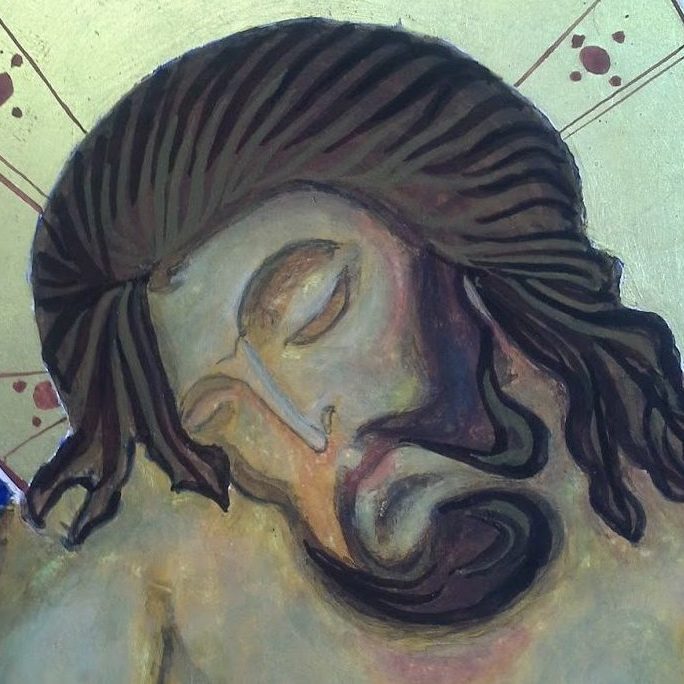Mothering Sunday, the day of thanksgiving for our mother, the Church, as well as our earthly mothers, is a good time to reflect on the idea of ‘God our Mother’. Thirty years ago this image of God was shocking to many people – these days I think we mostly take it in our stride. But where does this image of God come from?
It’s there in the bible, in the Hebrew Scriptures. Have a look at Hosea 11:3-4, Isaiah 66:13, Isaiah 42:14 Psalm 131:2 ,Psalm 123:2-3. Not all these mother images concern nurturing: have a look at Hosea 13:8 where God is described as a mother bear attacking those who threaten her cubs!
Jesus used female imagery for God in the New Testament; look out for the woman seeking a lost coin (Luke 15: 8-10) – a parallel to the parable of the lost sheep. Most movingly and beautifully, Jesus speaks of his protection as that of a mother hen, keeping her chicks safely under her wings. (Matthew 23:37)
St Anselm of Canterbury (1033/4–1109) wrote these words in a prayer:
Jesus, like a mother you gather your people to you;
you are gentle with us as a mother with her children.
Often you weep over our sins and our pride,
tenderly you draw us from hatred and judgement.
You comfort us in sorrow and bind up our wounds,
in sickness you nurse us, and with pure milk you feed us.
Jesus, by your dying we are born to new life;
by your anguish and labour we come forth in joy.
And Mother Julian of Norwich, (1343 – after 1416) an English mystic wrote of God ‘as truly as God is our Father, so truly is God our Mother.
‘when [a child] is hurt or frightened it runs to its mother for help as fast as it can; and [God] wants us to do the same, like a humble child, saying, “My kind Mother, my gracious Mother, my dearest Mother, take pity on me”
‘I understand three ways of contemplating motherhood in God. The first is the foundation of our nature’s creation; the second is his taking of our nature, where the motherhood of grace begins; the third is the motherhood at work . . . and it is all one love.’
Theologian Sallie McFague claims that maternal images of God “giving birth, nursing, comforting, and caring” highlight humanity’s complete reliance on God: recognizing human dependence on God for both spiritual and natural birth, spiritual and natural growth, human and divine protection add something important to our experience of faith.
The importance of these texts isn’t simply to do with ‘levelling up’ male and female imagery, so much as stretching our understanding of who God is. After all, these images include God as a bear and as a hen. One of the greatest dangers in our faith is that of making God too small, too tame. When we stop to consider the mystery of God, our God-language is bound to become more varied, more vibrant and more interesting.
Amen
Tweet